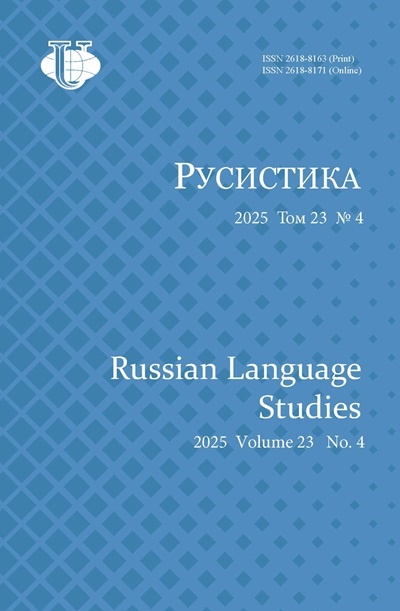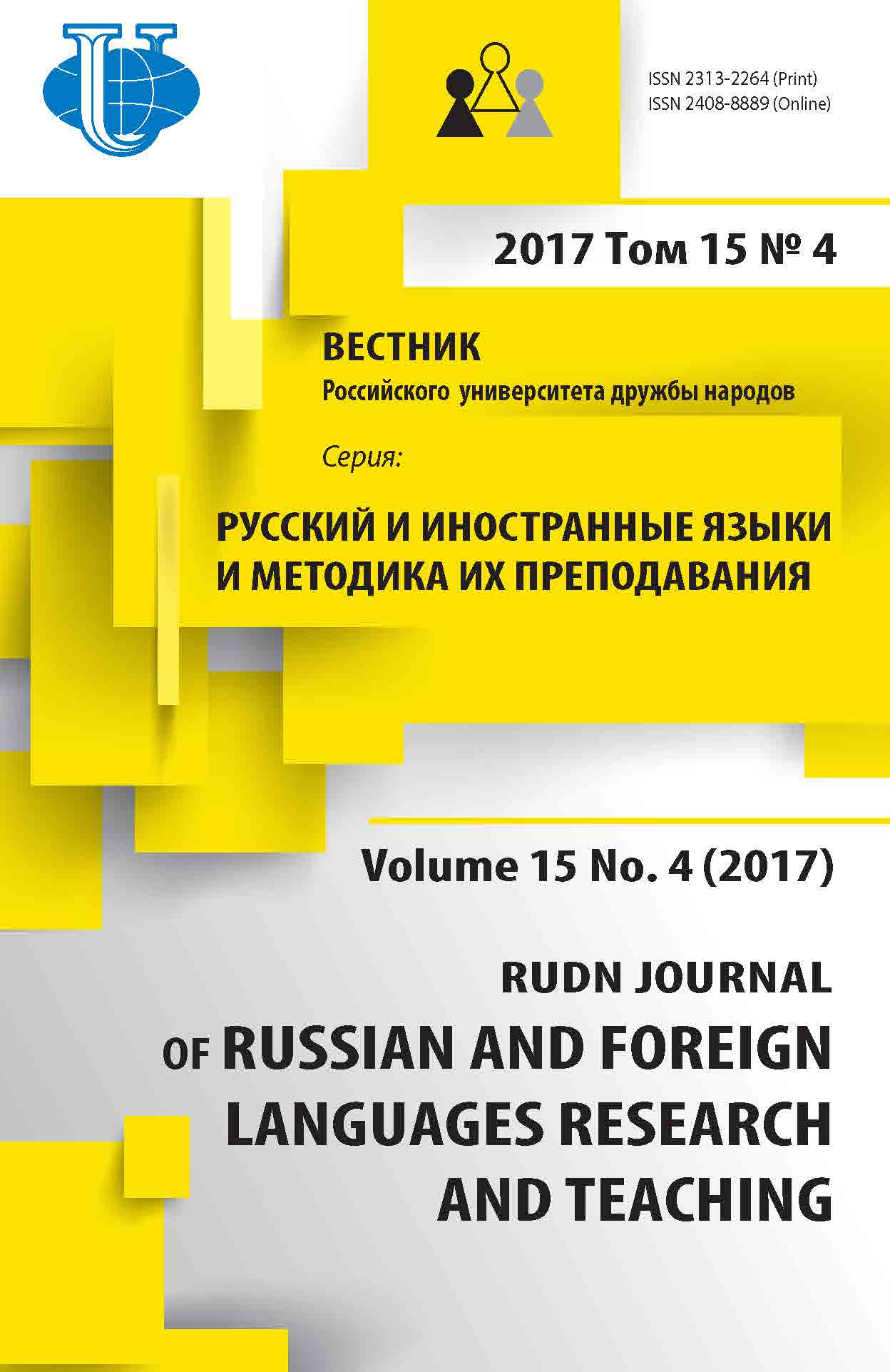ОБРАЗОВАНИЕ И МЕТОДИКА: ОТ СУЩЕГО К ДОЛЖНОМУ
- Авторы: Пассов ЕИ1
-
Учреждения:
- Елецкий государственный университет им. И.А. Бунина
- Выпуск: Том 15, № 4 (2017)
- Страницы: 389-413
- Раздел: Статьи
- URL: https://journals.rudn.ru/russian-language-studies/article/view/17445
- DOI: https://doi.org/10.22363/2313-2264-2017-15-4-389-413
- ID: 17445
Цитировать
Полный текст
Аннотация
Данная статья посвящена проблеме, которая еще не исследовалась применительно к области иноязычного (в том числе русскоязычного) образования, а именно - проблеме конвергенции образования как феномена и методики как науки. Для решения данной проблемы в первой части статьи рассматривается образование как феномен. Предлагается новая трактовка образования и иерархия принципов ее построения. Автор выдвигает идею о том, что система образования должна строиться как изофункциональная модель процесса социализации. Во второй части утверждается, что методика по сути своей есть архитектор системы образования, для чего она из некоей прикладной науки об обучении языку должна превратиться в теорию и технологию образования. Автор излагает основные признаки новой методической науки. Главный посыл статьи заключается в доказательстве следующего утверждения: без новой методики в принципе невозможно построить эффективную систему образования. Имен-но поэтому необходим переход от сущего к должному.
Об авторах
Е И Пассов
Елецкий государственный университет им. И.А. Бунина
Автор, ответственный за переписку.
Email: eipassov@rambler.ru
Пассов Ефим Израилевич, Заслуженный деятель науки РФ, основатель научной школы «Методическая школа Пассова», доктор педагогических наук, профессор, специалист в области методики иноязычного образования. Руководитель Российского центра иноязычного образования, профессор Елецкого государственного университета им. И.А. Бунина, почетный профессор Нижегородского государственного лингвистического университета, почетный профессор Минского государственного лингвистического университета, профессор кафедры гуманитарного образования Института развития образования Липецкой области.
ул. Коммунаров, 28, Елец, Липецкая область, Россия, 399770Список литературы
- Ильичев Л.Ф., Федосеев П.Н., Ковалев С.М., Папов В.Г. Философский энциклопедический словарь. М.: Сов. энциклопедия, 1983. 840 с.
- Каган М.С. Философия культуры. СПб.: ТОО ТК «Петраполис», 1996. 416 с.
- Мещеряков Б., Зинченко В. Большой психологический словарь. СПб.: Прайм-ЕВРОЗНАК, 2003. 672 с.
- Новейший философский словарь: 2-е изд., переработ. и дополн. Минск: Интерпрессервис; Книжный Дом, 2001. 280 с.
- Пассов Е.И. Методика как наука будущего. Краткая версия новой концепции. СПб.: Златоуст, 2015. 172 с.
- Розов Н.С. Философия образования: предмет, концепция, основные темы и направления изучения // Философия образования XXI века. М., 1992. С. 50-72.
- Штофф В.А. Роль моделей в познании. Л.: Изд-во Ленингр. ун-та, 1963. С. 52.
Дополнительные файлы














